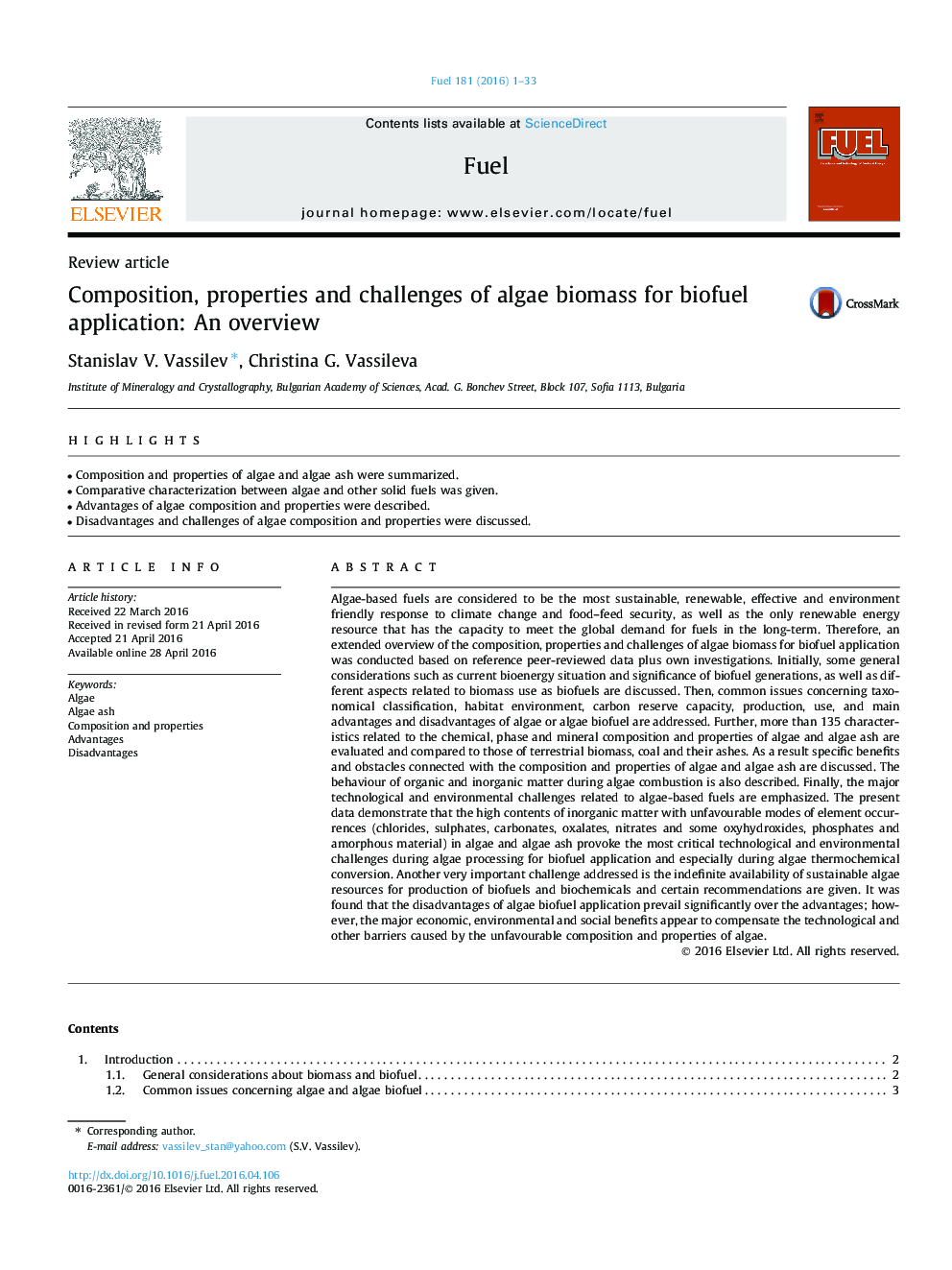| Article ID | Journal | Published Year | Pages | File Type |
|---|---|---|---|---|
| 204892 | Fuel | 2016 | 33 Pages |
•Composition and properties of algae and algae ash were summarized.•Comparative characterization between algae and other solid fuels was given.•Advantages of algae composition and properties were described.•Disadvantages and challenges of algae composition and properties were discussed.
Algae-based fuels are considered to be the most sustainable, renewable, effective and environment friendly response to climate change and food–feed security, as well as the only renewable energy resource that has the capacity to meet the global demand for fuels in the long-term. Therefore, an extended overview of the composition, properties and challenges of algae biomass for biofuel application was conducted based on reference peer-reviewed data plus own investigations. Initially, some general considerations such as current bioenergy situation and significance of biofuel generations, as well as different aspects related to biomass use as biofuels are discussed. Then, common issues concerning taxonomical classification, habitat environment, carbon reserve capacity, production, use, and main advantages and disadvantages of algae or algae biofuel are addressed. Further, more than 135 characteristics related to the chemical, phase and mineral composition and properties of algae and algae ash are evaluated and compared to those of terrestrial biomass, coal and their ashes. As a result specific benefits and obstacles connected with the composition and properties of algae and algae ash are discussed. The behaviour of organic and inorganic matter during algae combustion is also described. Finally, the major technological and environmental challenges related to algae-based fuels are emphasized. The present data demonstrate that the high contents of inorganic matter with unfavourable modes of element occurrences (chlorides, sulphates, carbonates, oxalates, nitrates and some oxyhydroxides, phosphates and amorphous material) in algae and algae ash provoke the most critical technological and environmental challenges during algae processing for biofuel application and especially during algae thermochemical conversion. Another very important challenge addressed is the indefinite availability of sustainable algae resources for production of biofuels and biochemicals and certain recommendations are given. It was found that the disadvantages of algae biofuel application prevail significantly over the advantages; however, the major economic, environmental and social benefits appear to compensate the technological and other barriers caused by the unfavourable composition and properties of algae.
